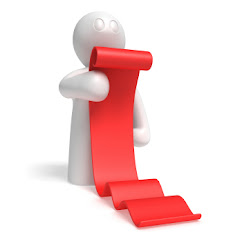It seems to be something of a problem of the Chinese language that it is tremendously woolly. Perhaps it's a failing of their philosophical tradition too: they never had a Socrates, so definitional analysis never really seems to have taken off here. I don't really know enough of linguistics to claim an authoritative opinion on this, but I suspect that there are so many deficits in the language (paucity of vocabulary, difficulty of new word formation, no tense formation as such, few if any modals, limited use of relative clauses, no articles at all, absence of clear distinctions between nouns and verbs), that precision of the kind we take for granted in English just isn't possible in Chinese.
Making all due allowance for the idiosyncracies and shortcomings of the language, though, I still say Chinese politicians and media tend to rely far too heavily on clichéd phrases that are so nebulous as to be almost completely meaningless. It seems to be a key technique of Chinese rhetoric. And - at least when addressing an overseas audience - it needs to be ruthlessly weeded out. It sounds, at best, tedious and pompous; at worst, evasive, or just plain ludicrous.
I came across a particularly baffling example in one of my recent editing jobs: "the Chinese Confucian circle". Any idea what that's supposed to be? Me neither! Evidently it is becoming a recognised term of art in certain academic circles in China, but its meaning is not readily apparent to anyone else. Is it a club or society to promote Confucian values? Is it a cabal of Confucian scholars? No, it appears to mean "those East Asian countries which share a tradition of Confucian thought with China". So, that would be Korea, then (North and South)? And perhaps (rather more tenuously?) Japan. And you might think that the word "Chinese" could usefully be omitted from the formula as redundant or misleading - since everyone knows Confucius was Chinese, but here we're not talking about Confucianism in China.
The other one that's been appearing everywhere in the local media over the past fortnight is, of course, "the D*l*i clique" (or sometimes, to give us just a little variety, "the D*l*i coterie").
Occasionally, the D*l*i will be vilified directly, but more often of late it seems the Chinese leadership and media are attacking him via this formula. The insinuation that the D*l*i is masterminding the recent troubles is still clear enough, but..... they're trying to give themselves a shred of deniability about that? "Ah, we didn't actually say it was the D*l*i himself."
Well, what exactly did you say? Nothing. Who are the members of this clique? What is their relationship to the D*l*i? Are they part of his intimate circle, or people who only know him at a distance? Do they treat him merely as a figurehead and an inspiration, or do they take instructions from him?






No comments:
Post a Comment